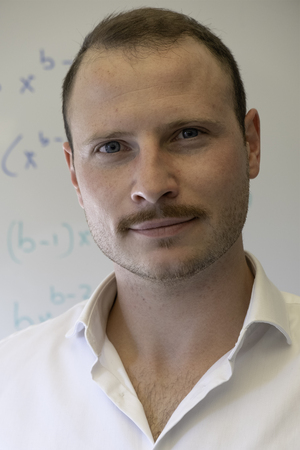Publications
Uncertainty Quantification and Experimental Design for Large-Scale Linear Inverse Problems under Gaussian Process Priors
This work extends traditional sequential uncertainty reduction strategies (SUR) to large-scale Bayesian inverse problems. By introducing a new, implicit representation of the posterior covariance matrix of a Gaussian process, we are able to scale SUR real-world 3D problems. The introduced techniques are demonstrated on a set estimation problems in gravimetric inversion (Stromboli volcano).
Disintegration of Gaussian Measures for Sequential Assimilation of Linear Operator Data
In this article, we provide a theoretical framework for conditioning Gaussian processes (GP) under linear operator data by leveraging the theory of Gaussian measures. Disintegrations of Gaussian measures offer a sound theoretical framework for conditioning under linear operator data, and we extend previous results to allow conditioning non-centered measures. To ensure that the measure results transfer to the GP world, we provide conditions for ensuring that a GP with trajectories in a given Banach space induces a measure on that space.
Learning excursion sets of vector-valued Gaussian random fields for autonomous ocean sampling
In this work, we extend SUR strategies to multivariate settings. In passing, we provide a new way of looking at the GP co-kriging equations that makes them form-invariant across all dimensions of the output and allows computing semi-analytical formulae for the SUR criterion. The techniques are demonstrated on a river plume estimation problem.
published version at Annals of Applied Statistics
Non-Sequential Ensemble Kalman Filtering using Distributed Arrays
Ensemble Kalman filtering (EnKF) is the most popular data assimilation technique nowadays, owing to its ability to handle high-dimensional state spaces and to its flexibility in the specification of the prior. Nevertheless, the implementation that is used by most practicioners (localizes, sequential, square root filter) is wrong, because of erroneous update equations. Although this fact is well-known in the data assimilation community, most choose to ignore it, arguing that the inacurracies are small. In this work, we provide a comprehensive study of the inacurracies introdued by the use of wrong update equations and show how one can fix these by using a distributed implementation of the EnKF. Our implementation relies on distributed arrays, which allows us to handle very large matrices and thus assimilate all data at once, fixing the errors that stem from sequential assimilation.
(Thesis) Non-Sequential Ensemble Kalman Filtering using Distributed Arrays
This thesis aims at developing sequential uncertainty reduction techniques for set estimation in Bayesian inverse problems. Sequential uncertainty reduction (SUR) strategies provide a statistically principled way of designing data collection plans that optimally reduce the uncertainty on a given quantity of interest. This thesis focusses on settings where the quantity of interest is a set that is implicitly defined by conditions on some unknown function and one is only able to observe the values of linear operators applied to the function. This setting corresponds to the one en- coutered in linear inverse problems and proves to be challenging for SUR techniques. Indeed, SUR relies on having a probabilistic model for the unknown function under consideration, and these models become untractable for moderately sized problem. We start by introducing an implicit representation for covariance matrices of Gaus- sian processes (GP) to overcome this limitation, and demonstrate how it allows one to perform SUR for excursion set estimation in a real-world 3D gravimetric inversion problem on the Stromboli volcano. In a second time, we focus on extending vanilly SUR to multivariate problems. To that end, we introduce the concept of ’generalized locations’, which allows us to rewrite the co-kriging equations in a form-invariant way and to derive semi-analytical formulae for multivariate SUR criteria. Those approaches are demonstrated on a river plume estimation problem. After having extended SUR for inverse problems to large-scale and multivariate settings, we de- vote our attention to improving the realism of the models by including user-defined trends. We show how this can be done by extending universal kriging to inverse problems and also provide fast k-fold cross-validation formulae. Finally, in order to provide theoretical footing for the developed approaches, show how the conditional law of a GP can be seen as a disintegration of a corresponding Gaussian measure under some suitable condition.
